Valeant's outgoing boss 'regrets' raising drug prices
- Published
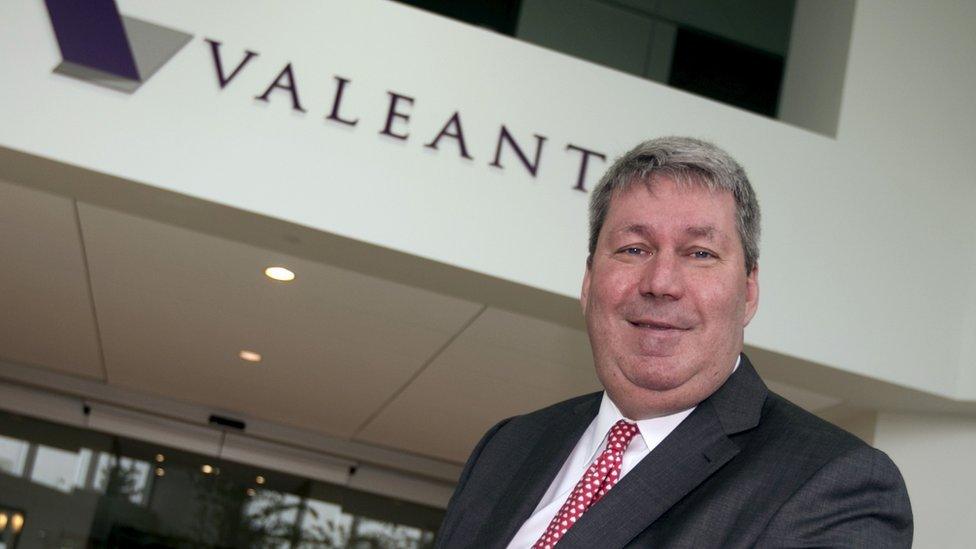
Michael Pearson said he regretted using price increases as a strategy for raising profits
"I was too aggressive."
That was the message of Valeant's outgoing chief executive Michael Pearson on Wednesday as he testified to a Senate committee about the company's pricing strategy.
The Senate Ageing Committee is investigating the industry-wide practice of buying existing prescription drug brands and ratcheting up prices.
It has caused outrage and provoked criticism from presidential candidates.
The former boss of drugs firm Turing - Martin Shkreli - became the poster-child for the problem when Turing raised the price of one drug by 5,000%.
But, Valeant has increased the price of many more of its medicines.
Mr Shkreli sniggered through his own appearance before the committee earlier this year and refused to answer questions.
'Regret'
Mr Pearson was more conciliatory in his remarks, acknowledging that Valeant's strategy of buying older medicines and raising their price rather developing new drugs had gone too far.
"In hindsight I regret pursuing, transactions where a central premise was a planned increase in the prices of the medicines," he said.
But Mr Pearson can soon begin to put that regret behind him. On Monday, Valeant's board announced , externalit had concluded its month-long search for his replacement. Joseph Papa, the ex-head of pharmacy company Perrigo will take over as chief executive in May.
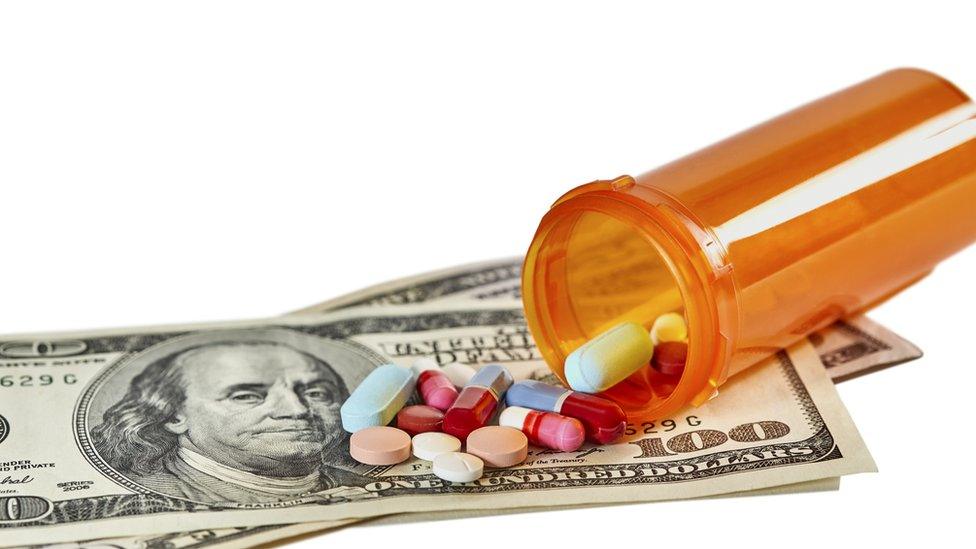
The Senate Aging Committee is investigating pharmaceutical industry's pricing methods which some have called "price gouging"
Mr Papa won't be the only new member of Valeant's leadership. Activist investor Bill Ackman, an outspoken supporter of Valeant and its pricing methods, joined the company's board in March.
Until recently he was also a loyal partner to Mr Pearson.
After all that has happened - the threat of a default, several failed attempts to buy Botox-maker Allergan, a scandal involving "phantom" pharmacies, federal investigations, and an 80% drop in the company's share price in one year -that relationship has crumbled.
And nearly all those problems link back to the way Valeant and its long-time boss pursued profits through aggressive price hikes.
Rises defended
In 2010 Mr Pearson was named chief executive of Valeant after a merger with Canada's Biovail.
Under his stewardship Valeant positioned itself as a new type of drugs company, focused on growth through acquisitions and exploiting the eccentricities of the US pharmaceuticals industry to boost profits.
It raised the price of a lifesaving heart drug, Nitropress, by 525% in 2015 and a migraine treatment, DHE 45, by 356% over the course of a year.
The industry has defended this practice saying that, without raising prices, it would be unable to invest in new treatments.
It is Valeant's wholehearted embrace of price increases rather than research and development that has raised questions about whether its leaders really had a long-term plan keep the company profitable.
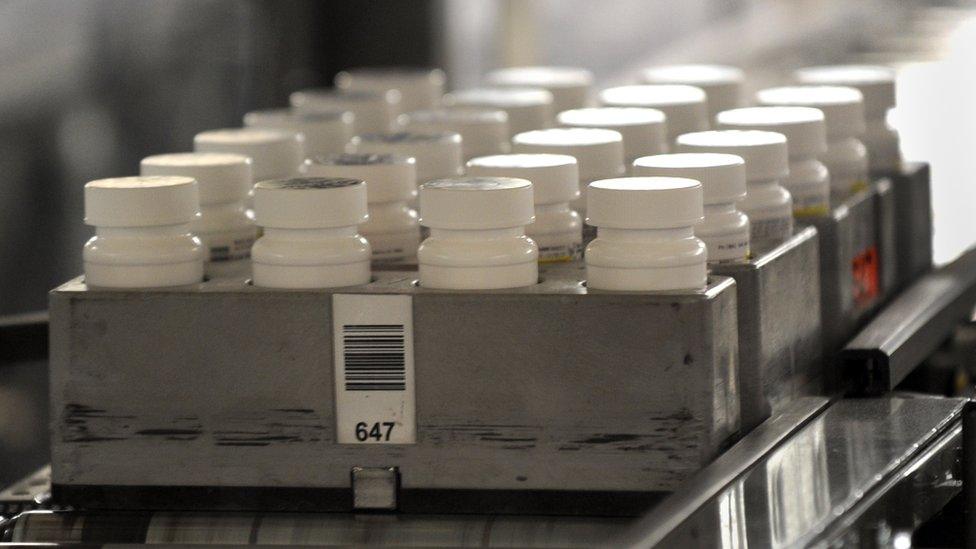
Buying the rights to existing drugs and raising the price is a way many drug companies make a profit in the US
"Valeant's actions were an order of magnitude more extreme than its peers," says David Amsellem, senior research analyst at Piper Jaffray.
"There are a lot of older drugs with some degree of price inelasticity that doesn't mean you should take triple-digit price increases on these products," he says.
Allergan and Ackman
Supporting this approach for the last two years was hedge fund manager Bill Ackman.
In 2014, Mr Ackman and Mr Pearson announced a partnership to pursue Valeant's purchase of Irish Botox maker, Allergan.
Mr Ackman, who owned stock in Allergan, praised Mr Pearson's ability to keep costs down and expand profit.
The slick-talking, extrovert investor made a significant contrast to the soft-spoken, cost cutting chief executive. But their partnership remained strong, even after Allergan rejected Valeant's offer, and Mr Ackman was accused of insider trading for making a deal with Valeant while owning Allergan shares.
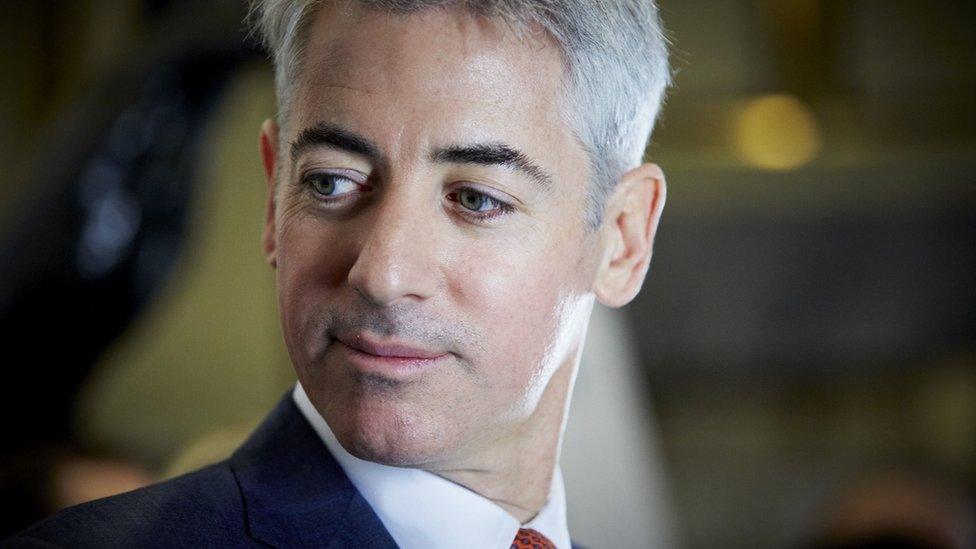
Bill Ackman has been one of Valeant's biggest investors and an outspoken supporter
The friendship seemed all the more astounding given Mr Ackman's propensity for fighting with the management and boards of companies he invests in.
'Phantom' pharmacies
The first severe blow to Mr Pearson's leadership came in October 2015 when Valeant's ties to mail-order pharmacy Philidor were uncovered.
Valeant was accused of using Philidor to boost the price of medicine by falsifying sales.
Mr Pearson admitted that Valeant had an option to buy Philidor and that it included the pharmacy's financial records in its own.
The relationship raised suspicion from regulators and investors about the truthfulness of Valeant's accounting practices. This concern remained even after Valeant cut ties with Philidor.
Leave of absence
In December Mr Pearson was hospitalised with severe pneumonia and forced to take medical leave.
In his absence chief financial officer Howard Schiller stepped in.
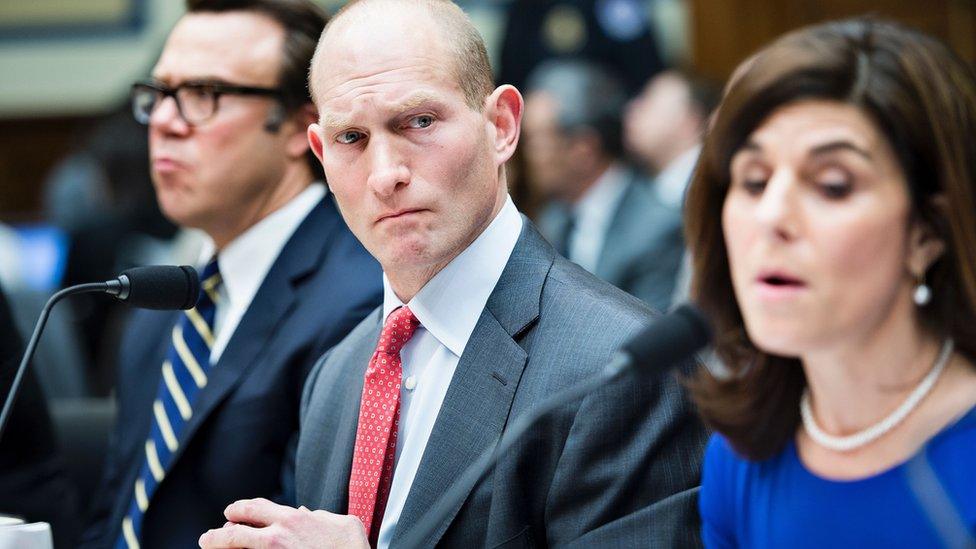
Howard Schiller testified before the Senate while acting chief executive of Valeant
Mr Schiller defended Valeant's price increasing practice before Congress, in February saying: "Higher prices draw generic competitors into the market, which in turn tends to put significant downward pressure on prices."
But that defence of Valeant's signature strategy was undermined when Valeant admitted it was the subject of "several ongoing investigations" by regulators and cut its corporate earnings projections.
The news sent Valeant shares tumbling 51% in a single day, just two weeks after Mr Pearson returned to work.
At the end of March, Valeant asked for an extension to file its annual financial report while it worked to improve its internal accounting system.
Without the extension - secured a few weeks later, external - Valeant would have risked defaulting on $30bn of debt.
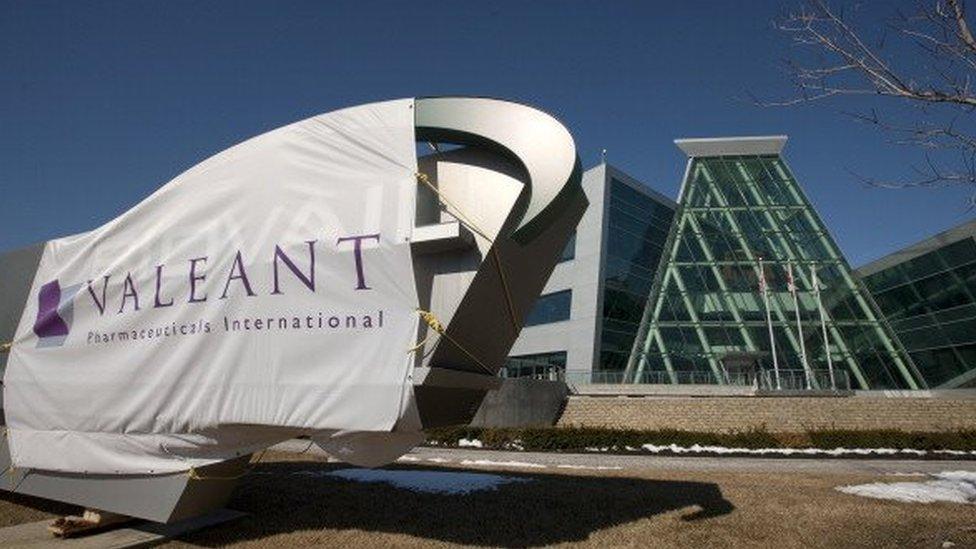
How Valeant pursues profits in the wake of these scandals is not yet clear
By that time Valeant's board, external had announced it was searching for Mr Pearson's replacement and one-time partner Bill Ackman was on Valeant's board.
Senator Susan Collins and Senator Claire McCaskill, leaders of the Senate Aging Committee, called Mr Pearson's testimony "central" to understanding the impact of sky-rocketing drug prices.
How Valeant pursues profits in the wake of these scandals is not yet clear. But that will no longer be Mr Pearson's problem.
- Published29 February 2016

- Published15 March 2016

- Published21 March 2016
